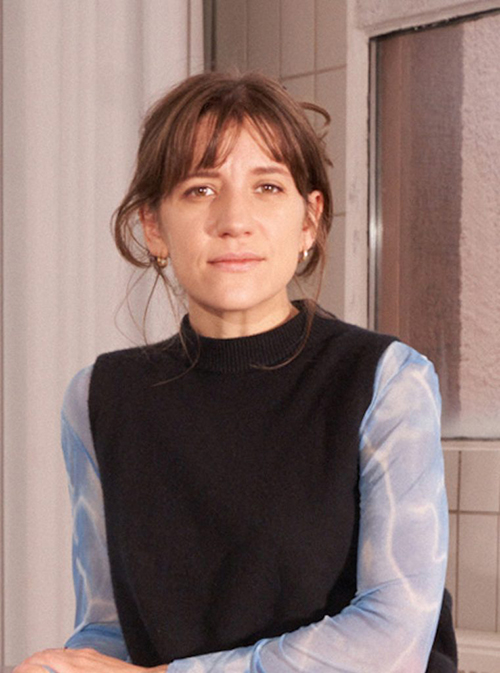2023
IN COLLABORATION WITH ARCATHENS
Linnéa Bake, as ARCAthens’ Curatorial Fellow, has been participating in the Occupy Atopos residency
from January 16th to March 13th, 2022.
Linnéa Bake is a German-Swedish curator, writer and editor. She is one of the artistic directors of soft power, a non-profit art association and exhibition space she co-founded in Berlin in 2020. Among her other previous curatorial projects are “Re: Over everything which exists under the sky” (Gasworks, London, 2019) and “To Draw a Line” (Nuda, Stockholm/0fr Centquatre, Paris, 2019). Having graduated from the Berlin University of the Arts in 2015 and the Royal College of Art London in 2019, in recent years she has held positions i.a. at the 11th Berlin Biennale for Contemporary Art (assistant curator), KW Institute for Contemporary Art / DAAD Artists-in-Berlin Program (project-based), and the Berlin Artistic Research Grant Programme (public programme and exhibitions). Her writing has been published by institutions such as Göttinger Kunstverein, Kunsthalle Düsseldorf and Manifesta 13, as well as magazines like Texte zur Kunst, Spike Art Magazine, Interview Germany, King Kong Magazine and Nuda. Exploring the potential of text, writing and publishing as curatorial forms, she works as a freelance writer and editor for a number of artists, advising them on their written output throughout the development of research and artistic concepts.
“As a curator and writer, I am concerned with the political conditions under which cultural spaces function and in which they intervene. Following this interest, I co-founded the non-profit art space soft power in Berlin in 2020: A collective curatorial endeavor, appropriating with its name a term that describes and uses the influence which ”soft” assets such as culture and art can have on political and economic spheres. Our ongoing programme is guided by the question how this notion can be productively challenged and reclaimed. My dissertation research at the Royal College of Art in 2018-2019 laid the foundation for this developing curatorial concern, focusing on the discursive context of the globalized biennial model, with all the tensions between the local and global, the center and periphery, as well as the political and aesthetic, which this format historically implies.”
See also:
- 2010 - 2023 #OccupyAtopos
- Jan 16 – Mar 13 ATOPOS cvc collaborates with ARCAthens #3
- Oct 01 - Nov 15 2019 ATOPOS cvc collaborates with ARCAthens #1
- Sep 1 - Nov 14 2022 ATOPOS cvc collaborates with ARCAthens #2

